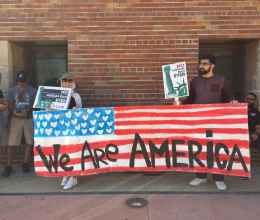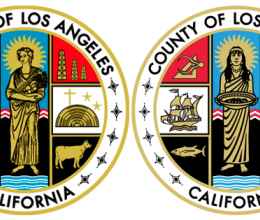ORANGE, Calif. - On behalf of a Buddhist temple, the ACLU of Southern California sued the city of Garden Grove today demanding an injunction to stop the enforcement of an unconstitutional city code.
"Under the Garden Grove city code, city officials have full discretion to decide what religious institutions are allowed to practice in the city and where they are allowed to practice," said Belinda Escobosa Helzer, staff attorney for the ACLU/SC in Orange County. "We are challenging this unconstitutional code so that Quan Am Temple and other religious institutions in the future are legally allowed to practice their religion."
Quan Am Temple, or the Vietnamese Buddhism Study Temple, filed a lawsuit in federal district court in Santa Ana today against the Garden Grove city council and planning commission for violating the Temple and its congregation's First Amendment rights to free religious exercise, their rights under the California Constitution and the Religious Land Use and Institutionalized Persons Act of 2000.
"It is very difficult for us to file this complaint, but we feel we have been left with no choice," said The Most Venerable Thich Dao Quang, the Abbot of the Quan Am Temple. "We have done everything possible to allay the concerns of the city. We reduced the size of the temple, we added extra parking, we offered to pay property taxes, we proposed a shuttle service for congregants on busy holidays and we even paid for a traffic study of the site that said traffic would be reduced, but still the temple has been denied. We now have nowhere to practice our religion."
Quan Am Temple opened in Garden Grove in 1999, but by 2003 the congregation had outgrown its building. The Temple began looking for a larger permanent site to house a monastery and a place of worship for the congregation of 150 to 300 area residents.
Current Garden Grove statutes require religious institutions to be housed in residential zones or seek a zone change from the city and obtain a conditional use permit prior to practicing their religion in the city. In 2004 a congregant loaned Quan Am Temple $1.95 million to purchase a medical building on 1.8 acres in an area zoned Office-Professional that had been on the market for 3 years. Before purchasing the property, the Abbot and two followers received assurances from members of the city council that the city would support the project, but despite a recommendation from city staff the planning commission and the city council denied permits for the project.
"The Temple is hanging on by a string, its congregation is unable to practice its religion and the temple is losing money and barely able to survive. They cannot even afford to keep all the lights on as they try to hang on to the building while this ordeal continues," Escobosa Helzer said. "The city says it's worried about losing its tax base, but the Temple has offered to pay property taxes even though religious institutions are tax exempt and the building has sat nearly empty for about three years."
The city has routinely allowed non-religious non-profits, including the Boy's and Girls Club, which neighbors the temple site, to be housed in commercial areas, and has granted zone changes to some religious groups in the city, Escobosa Helzer said.

